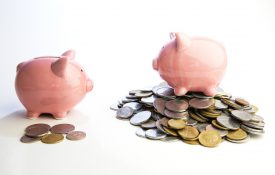-

New Research From Clinical Psychological Science
A sample of new research exploring links between procrastination and psychopathology, post-divorce depression and mortality, and co-development of relational aggression and disruptive behavior.
-

Too Fast, Too Slow: Judging–And Misjudging–Speeds
Video played at different speeds can quickly alter what people perceive as normal speed, which may affect how we drive, play sports, and even make decisions as jury members.
-

Strangers Can Detect Social Class in Just Seven Words
New research shows that a person’s social class is communicated in very brief interactions and maybe even in a few words.
-
Why Some Say the Eclipse Is Best Experienced in a Massive Crowd
The New York Times: Right about now, maybe you’re looking at your bank account and reports of unprecedented traffic and wondering why you thought it was a good idea to experience the eclipse in the particular spot you chose. You felt original, planning to watch near a mountain of cars (Carhenge, near Alliance, Neb.) or along the moon’s limb (Glendo, Wyo.). But then you saw that thousands of other people had the same idea. Some are warning of a “zombie apocalypse,” as hordes of befuddled sky-gazers strain the resources of towns more accustomed to hosting pancake breakfasts than managing Coachella-size gatherings. Don’t worry.
-
Time, not material goods, ‘raises happiness’
BBC: In an experiment, individuals reported greater happiness if they used £30 ($40) to save time - such as by paying for chores to be done - rather than spending the money on material goods. Psychologists say stress over lack of time causes lower well-being and contributes to anxiety and insomnia. Yet, they say even the very wealthy are often reluctant to pay people to do the jobs they dislike. "In a series of surveys we find that people who spend money to buy themselves more free time are happier - that is they have higher life satisfaction," said Dr Elizabeth Dunn, a psychologist professor at the University of British Columbia, Canada. Read the whole story: BBC
-
You 2.0: How To Build A Better Job
NPR: Why do you work? Are you just in it for the money, or do you have a greater purpose? Popular wisdom says your answer depends on what your job is. But psychologist Amy Wrzesniewski at Yale University finds it may have more to do with how we think about our work. Read the whole story: NPR

